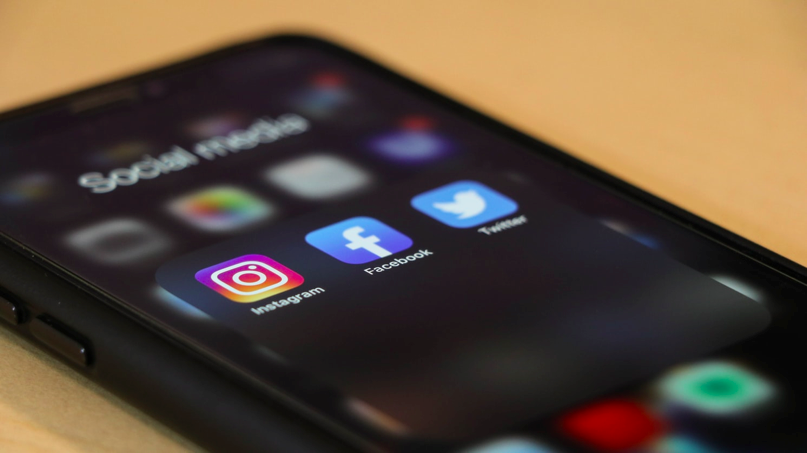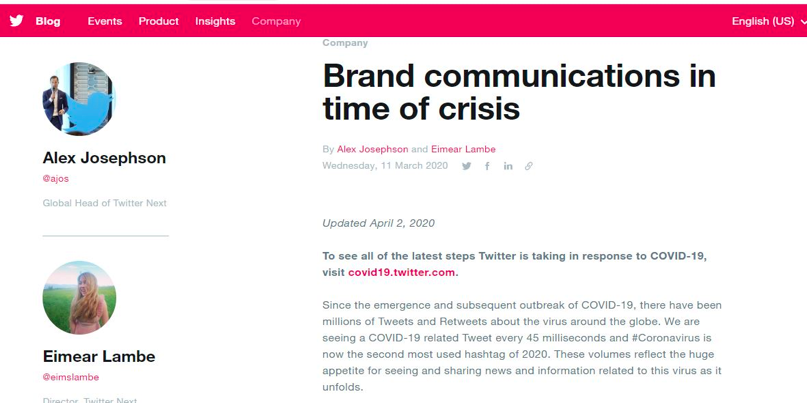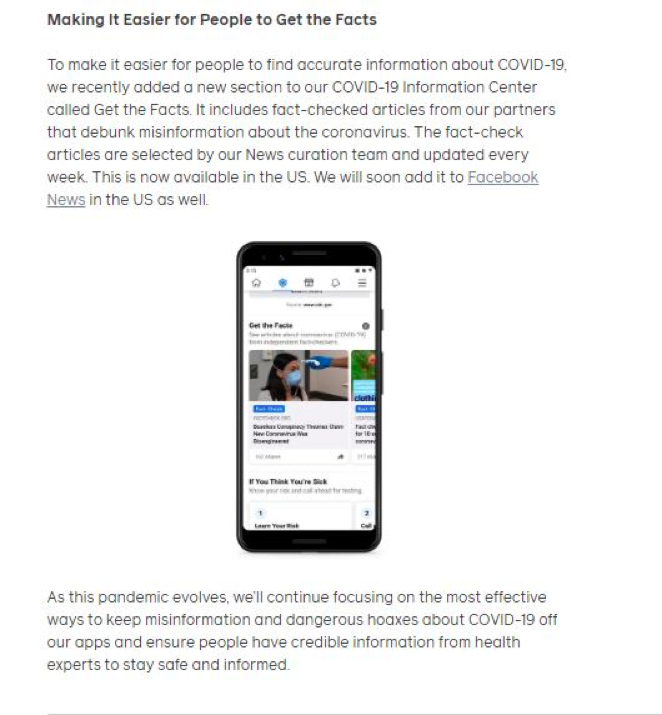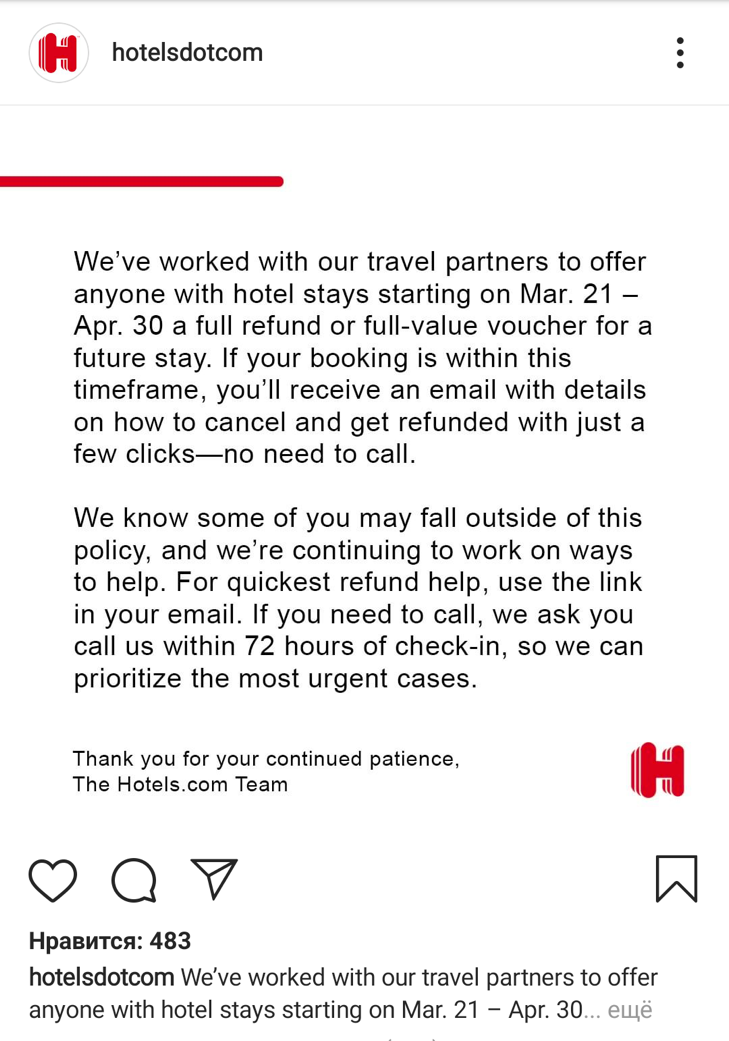COVID-19 pandemic has influenced all the spheres of our lives, starting with social interactions and up to economical consequences that we are yet to face afterward. A lot of people are quarantined, self-isolated, or experience other effects of this pandemic. It wouldn’t be an exaggeration to say that we are is a world crisis and it requires us to change what we do and how we do it. It is especially true for social media management.
It is applicable not only for individuals affected by pandemic but also for brands and companies all over the globe. Many of them have closed their doors until further notice and need to practice new ways of communication with their audience. And here is where social media becomes crucial as it is the only way to stay in touch.
Source https://unsplash.com/photos/EQSPI11rf68
The Role of Social Media in Pandemic
This is the first pandemic that is happening in the age of the internet and social media. And that’s one of the main ways of fast information delivery, which makes it a vital tool. Social media has a significant role during this lockdown, namely:
Source of Information
It is one of the primary resources people go to get the most recent updates on various topics, including COVID-19. Governmental agencies, WHO, and CDC are expected to provide updates and official statements online. And it is an amazing benefit that people didn’t have in previous pandemics. Anyone with internet access can now see the most recent statistics oncoronavirus.
At the same time, social media struggle with a great number of fake news, harmful information, and conspiracy theories floating around. Facebook, Google, and Twitter are taking measures to prevent the spreading of fake news, as they can be malicious and harmful.
Twitter, Facebook, YouTube, and other platform have been open about response against fake news and have issued new policies. For a social media handler, it is necessary to read them carefully and be sure that nothing on the page violates these rules.
Twitter on brand communication
Facebook on response to fake news
Social media is a tool and as any other tool, it can be used for various purposes, whether they are good or malicious ones. Overall, all major social media or entertainment platforms and apps have experienced growth in their active audience due to lockdown. YouTube and Netflix have even changed their default video quality settings to a lower resolution. It happens because more people are online searching for entertainment.
Narrative of the Public Response to the Events
It shapes the way people perceive the news and what opinions they are more likely to have. For example, the panic buying of toilet paper has quicklybecome a meme. In a way, it is a form of public shaming of those, who panic or hoard things in a crisis, which is not an uncommon phenomenon. Social media forms discourse around what society views as acceptable or unacceptable behaviour. And it can have a serious impact on the situation. For instance, a constant reminder to stay at home might seem unnecessary for some people, but others need some extra motivation to take an issue seriously. And public opinion may become such motivation.
In this regard, a brand or an influencer needs to be conscious of their social media presence and the content they put up. The content should be created with an understanding of public opinion, whether it agrees with it or not. In any case, it is necessary to acknowledge it.
Bringing Positivity and Relief for People
You’ve probably noticed the overall tendency for positive news now and it is completely understandable. Almost everyone is directly or indirectly affected by the situation, physically, emotionally or financially. People are more stressed and anxious, that’s why they are more prone to look for relief in social media. That’s why that news about dolphins and swans coming back to Venice channels spread so quickly, despite being completely fake. The audience generally wanted to see something positive even in such a complicated time.
Taking this into consideration, being on the more empathetic and positive side is a good social media strategy for any brand or company. There is a lot of tension and there is no need to spread panic even more.
Marketing Opportunity
It might sound a bit rough, but the crisis is a huge marketing opportunity. Simply because people expect companies to react and act on this. And the way brands react and post on social media is going to have a huge impact on their reputation and brand awareness. Marc Cuban recently stated that the way companies respond to the crisis will define their brand for a decade. It is not the time to profit from the pandemic, but rather the time to give back and show a good example.
Customers are more prone to ethical buying now and thinking carefully about who they trust. That’s why any business or entrepreneur is expected to show some ethical values and be empathetic. The recent study shows that respondents expect actions from businesses and 71% of them admitted that if they see a company making a profit from this tragedy, they will lose their trust forever. Therefore, social media management during this period is a complex task and requires a lot of planning.
How to Approach Social Media During Crisis
Social media presence can make or break deal right now, that’s why it is essential to be careful and extremely well-thought. The successful cases of companies’ reactions to the situation already show what works best. Here are several aspects to take into consideration.
1. Review critically all planned content. If you’ve planned a new campaign or scheduled posts, you need to revise them in modern conditions. What once could be a harmless post about travel or eating out will look bad now. A great example of well-adjusted content is the Guinness video message for St. Patrick’s Day. They’ve addressed the issue with “this year it feels a little different” but also had positive affirmations about being strong by sticking together and spreading love and being good and kind to dear people. Another important sentence was “we will march again” and “we are not going anywhere”, which gives the audience some confidence about the future. And the message ended with the notice of how Guinness gives back in this difficult time. This is a mastery of a response to pandemic while being on-brand.
2. Be reasonable with information on COVID-19. If you think that it is an important update to share with the audience, cite only respectable and sound sources, like WHO or CDC. Local and national authorities are also respectable sources. However, it might not be the best look if it has no direct connection to your expertise. Because people are already bombarded by the constant emails that might seem redundant or add into the panic. Be aware of what you are sharing, why, and where the information comes from as well as how often you do that.
Source https://unsplash.com/photos/t8T_yUgCKSM
3. Always update an audience on the changes in your work. For producers, it means talking about possible delays, shipping and restocks. Many companies also change their working hours on Google if they are still open. If you are not open, make clear where clients can find your products online. Of course, the type of content hugely depends on the person or brand and industry. A travel influencer, an IB IA writer or a clothing brand would have quite different experiences. Nevertheless, it is always good to update the audience on what is going on and how you are handling it. It makes the brand more human-like and shows the people behind it. If you are a content creator, speak about the ways it impacted your work, do not leave the followers in the dark.
Hotels.com update on refunds
4. Be open about the struggle. The customers want and deserve to know how businesses deal with the current situation. The huge mistake would be not to address it anyway. It would look ignorant and indifferent, which doesn’t sit well with the general public. Overall, customers want producers to share their values. Tell about the ways you are responding to the quarantine, how your company takes care of the employees. For a smaller business, a good solution would be to update on how they work in a new environment, post some behind the scenes. It is an interesting and relevant content that brings followers closer to you. For instance, the Corona beer had some quite bad publicity lately because a lot of media insinuated that they are losing customers. This story circulated before the official statement of the CEO, which was handled perfectly. It addresses this news as misinformation, but most importantly out the focus on the people behind the company.
5. Be on a positive side. The vast majority of people will appreciate a bit of positive news or posts on social media. Everyone is already quite tired of bad news. So a good idea is to spread positivity. For example, animal news is well-received, but it is important to verify sources. In general, you might just add encouragement and inspiration to your regular posts to show followers that you care and wish them well.
Source https://unsplash.com/photos/8pOTAtyd_Mc
6. Be funny, but not insensitive. Humor is a great way to bring down public tension and engage with the audience. And overall internet culture is hugely driven by humor, especially in the form of memes. However, if it is not on with the brand image that you’ve created it might seem insincere. Try to stay aligned with what has been established before. Also, make sure that jokes do not offend those affected by the pandemic. For instance, it is welcomed to joke about a shared experience, like dealing with isolation. But it is a bad idea to make fun of those who are in need or at risk or undermine their struggle.
7. Provide expert advice in your field. Now the demand for helpful and useful content has increased. And if you are not able to continue with the usual work, the best thing is to provide high-quality content for the audience. It will keep the engagement and communication at the same level and also might help someone. Write content on your field, especially if it can be transferred to the current events. You can provide advice on what to do during quarantine, especially if it aligns with your brand. A food-related small business might post recipes to try at home during the lockdown. A travel blogger might give a list of documentaries and films about distant countries to see. Incorporate your expertise into these tips and the audience will appreciate it.
FC Chelsea content for isolation training
8. Do not try to profit from the COVID-19. This is a huge mistake that might cost reputation and even business. There is no need to treat this situation not seriously or as a quick money grab. Do not promote or sell overpriced items that are in demand. Do not provide sales with slogans like “the best time to dress up” as it is insensitive and a terrible idea in the long run. It is a time to give back, not to take, and those companies that understand that will gain more points in the future.
9. Give back if it is possible. Companies of all sizes and industries are trying to do their part in this crisis. And it is a great idea to give back and share this via social media. Of course, only if it is possible for your entity. You can provide services for those on the frontline, offer help for people in need or raise donations. One can also share the donation link via social media and encourage followers to give something with you if they can.
In Summary
COVID-19 crisis is a complicated time for almost every person in the world and the full consequences are yet to appear. That’s why it is essential to revise social media strategy and adjust it to a current situation. Brands and influencers are expected to show empathy and take some action in this. The way the businesses handle the pandemic will hugely impact their reputation and trust of the audience. It is essential to stay empathetic, be honest, open, and give back if possible.
Author’s bio: Vitalii Anufriiev is a co-founder and marketing professional at WritingMetier. His areas of interest include digital marketing, brand strategy, and the use of social media for business growth.











